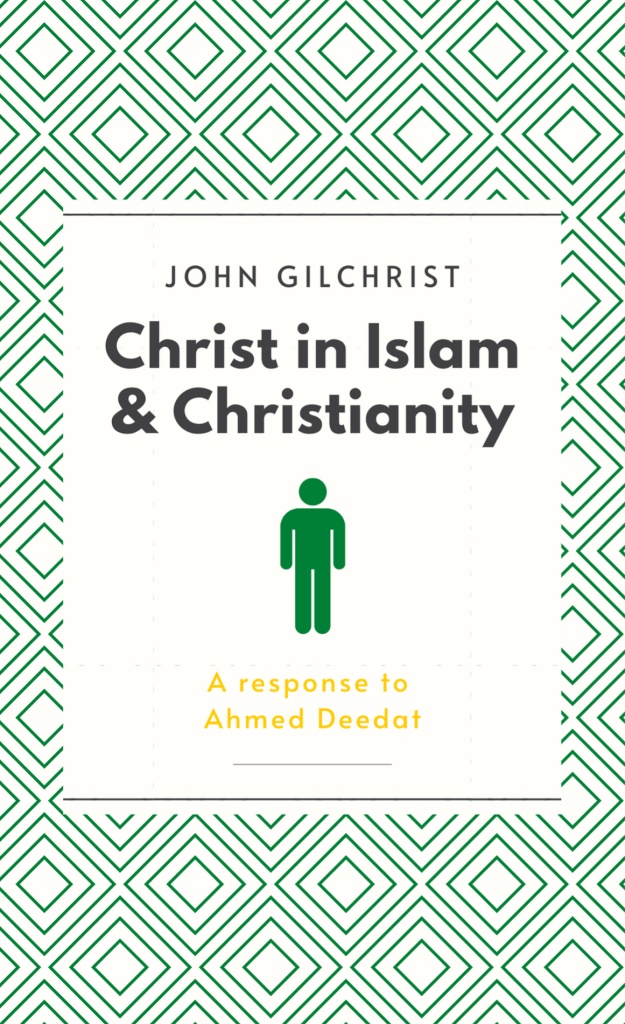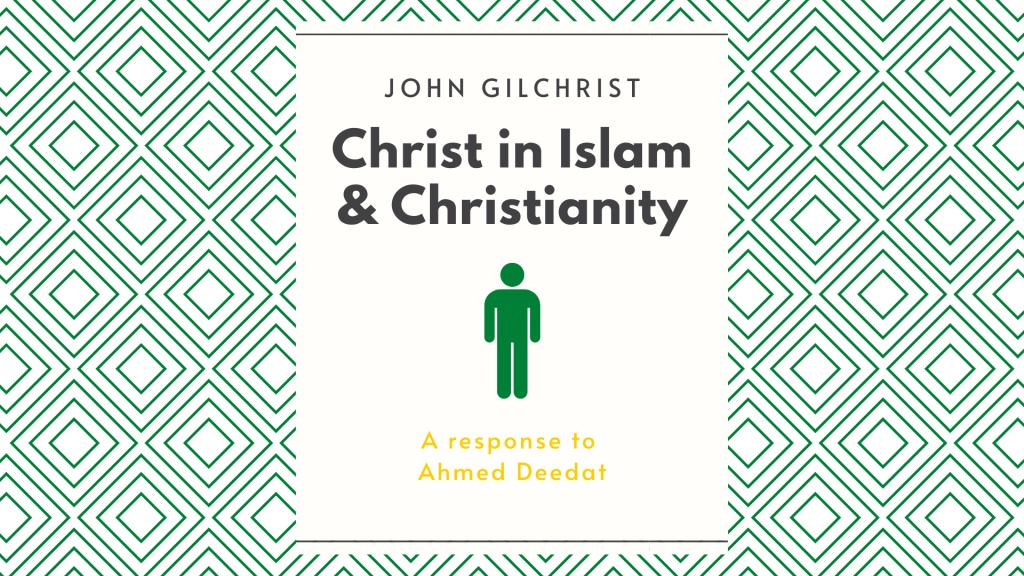The Exclusive Title given to Jesus
Christ in Islam and Christianity


Chapters
« Ch. 2 - Mary in the Qur'an and the Bible
Not only does Deedat show in his statements about the mother of Jesus that he has very little real knowledge of the Bible but this ignorance is once again apparent in his brief consideration of the title given to Jesus in the Bible, namely the Christ. He points out that the original Hebrew word masaha (from which comes mashiah, i.e. the Messiah, or the Christ) was a general word denoting any kind of anointing and that it was used of priests, pillars, tabernacles, etc., which were set apart for worship and duly consecrated for this purpose.
His argument then runs that, whereas Jesus is called the Messiah in the Bible or, as it is in the Greek, Christos, this does not make him unique in any way as "every prophet of God is so anointed or appointed" (Christ in Islam, p. 13).
He goes on to state that in Islam certain titles are given to certain prophets which, in a general sense, apply to all prophets. He says that whereas Muhammad is called rasulullah (messenger of Allah) and Moses kalimullah (word of Allah), these titles apply to all prophets, for each was a messenger of God with whom God spoke regularly. His conclusion, therefore, is that the title Christos is in no way unique and that Jesus was accordingly no different to the other messengers of God.
Once again his ignorance is exposed, for the title given to Jesus in the Bible is actually (in the original Greek) ho Christos, that is, "the Christ". The use of the definite article renders the title exclusive in a very real sense and reveals that Jesus was indeed the Messiah, God's Anointed One, in a way that none of the other prophets were. Indeed the same construction appears in the Qur'an where Jesus is called al-Masih, that is, the only one to whom this title applies.
Indeed in the Qur'an Jesus is also called a rasul on at least ten occasions (see, for example, Quran 4.171 where he is expressly called a rasulullah) and in Quran 3.45 is called a kalimatim-minhu, that is, a "Word from Him". But the title al-Masih, the Messiah, is applied to Jesus alone in the Qur'an and in the Bible the same title ho Christos likewise can be applied to no one else. Jesus was in a very unique way the Messiah and the title is his alone.
Deedat, of course, aims at reducing Jesus to the level of ordinary prophethood and thus finds this exclusive title the Messiah, (or the Christ), very awkward and a cause of offence. His argument, however, is based entirely on the false presumption that the title was never applied to Jesus in a very unique sense.
The Qur'an, while fittingly calling Jesus al-Masih, makes no attempt to explain the title. What, then, was its true meaning? One needs no Christian efforts here to transmute "baser metals into shining gold" (Christ in Islam, p. 13), as Deedat wishfully imagines, to exalt the status of Messiah above that of ordinary prophethood. For it was the Jews who spoke of a coming climactic figure whom they named the Messiah after an express use of this title in their Scriptures to so describe him (Daniel 9:26). Throughout the Scriptures of the earlier prophets they rightly found constant predictions of the coming of God's Anointed, one who would not be an ordinary prophet but the ultimate Saviour of the whole world. (Examples are Isaiah 7:14; Isaiah 9:6-7; Isaiah 42:1-4; Jeremiah 23:5-6; Micah 5:2-4; and Zechariah 6:12-13). He would establish the kingdom of God forever in justice and righteousness and would rule over the nations. He would at first be humbled (Isaiah 53:1-12) and cut off from the land of the living (Daniel 9:26), but at his return at the end of time he would bring the salvation and judgement of God, ruling in justice and glory over his righteous subjects while bringing his enemies from all over the world into submission at his feet (Psalms 110:1).
The Jews knew that this exalted figure, the Messiah, was coming and when Jesus came they openly speculated whether it might be him (John 7:31, John 7:41-43; John 10:24; Matthew 26:63). On a number of occasions he openly confirmed that he was indeed the Messiah (John 4:26; Matthew 16:17; Mark 14:62) and told the Jews that he would return in a cloud with power and great glory and that they would see him seated at the right hand of God (Matthew 26:64). It requires no supposed Christian "juggling of words" (Christ in Islam, p.13) to exalt Jesus to the status of God's eternal Saviour and Messiah. The Jews themselves knew that the Messiah would not be made of "baser metals" like the other prophets but would, in comparison, indeed be "shining gold" which Jesus surely was!
The Jews tragically rejected their Messiah, the fulfilment of their hopes, and so were cut off very shortly afterwards (AD 70), and to this day their religion has lost all its original meaning and glory. A more ironical tragedy is the attitude of the Muslim world, which in one breath acknowledges that Jesus was indeed the Messiah but in another claims that he was only a prophet. The whole meaning of the title is missed completely in Islam.
Jesus Christ is the exclusive Saviour of the world, the unique Messiah whom God sent for the healing of the nations. The title is his alone and exalts him to the status he alone enjoys among the sons of men - the King of Glory who will rule throughout eternity.